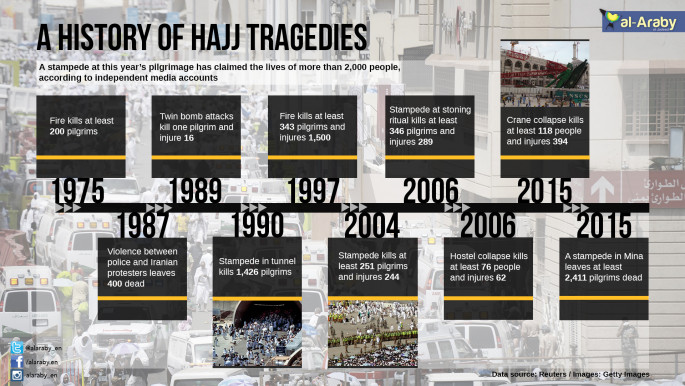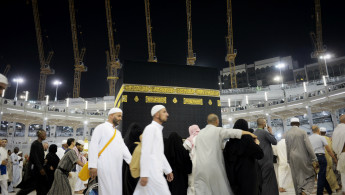No Hajj for Iranian pilgrims as Tehran-Riyadh talks stall
Tehran and Riyadh failed to reach an agreement on security and travel arrangements for Iranian pilgrims, after at least 464 were killed in a stampede at the annual pilgrim last September, for which the Islamic Republic blamed Saudi Arabia's "incompetence."
An Iranian delegation held four days of talks in Saudi Arabia last month, aimed at thrashing out a deal - but were unable to resolve their deadlock.
"The arrangements have not been put together and it's now too late," Iran's minister of culture and Islamic guidance Ali Jannati told the official IRNA news agency.
"The sabotage is coming from the Saudis," Jannati said, "Their attitude was cold and inappropriate."
Saudi Arabia denied sabotaging the talks but said visits from Iranian pilgrims must occur "within the system and guidelines that organise hajj affairs," its ministry said in a statement carried by Al-Riyadh newspaper.
 |
| Click here to enlarge. |
The kingdom "welcomes all pilgrims from all over the world and from all nationalities and sectarian backgrounds, and does not stop any Muslim from coming", the ministry of hajj's statement added.
Ties between both countries were further strained in January, after Riyadh broke off its diplomatic mission to Tehran, after its embassy buildings were ransacked by angry protesters following the execution of a leading Saudi Shia cleric.
Tehran had requested that Saudi Arabia issued Iranian pilgrims visas through the Swiss embassy in Tehran, which has looked after Saudi interests since January, but Riyadh refused.
"They did not accept our proposals concerning the issuing of visas or the transport and security of the pilgrims," Jannati added. "Saudi officials say our pilgrims must travel to another country to make their visa applications," Jannati said.
Shia Iran and Sunni Saudi Arabia are at odds over a raft of regional issues, notably the conflicts in Syria and Yemen, in which they support opposing sides.
Last month Saudi Arabia banned Iranian airline Mahan Air from using its airports and airspace over "safety concerns", citing alleged violations of national regulations relating to the safety of international carriers.
Agencies contributed to this report.





 Follow the Middle East's top stories in English at The New Arab on Google News
Follow the Middle East's top stories in English at The New Arab on Google News


